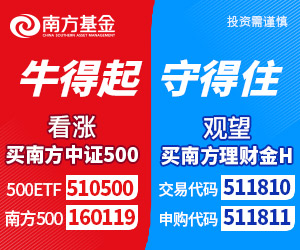New data from DNA Damage Response (DDR) inhibitor portfolio inform development path for this promising biology
Clinical trials in locally advanced head and neck cancer and advanced bladder cancer seek to advance standards of care
Not intended for US-, Canada- or UK-based media
DARMSTADT, Germany -- (BUSINESS WIRE) --
Merck, a leading science and technology company, today provided an update on the progress of the company’s innovative oncology development pipeline focused on DNA damage biology. With clinical programs designed to further advance standards of care in core tumors and assess the potential of novel mechanisms of action, including an industry-leading portfolio of DNA Damage Response inhibitors (DDRi), the company continues to build its focused leadership in the oncology space.
“Within our clinical-stage pipeline and our discovery programs, we have the opportunity to unlock and address DNA biology and apply a diversity of mechanisms to the treatment of multiple cancers,” said Victoria Zazulina, M.D., Head of Development Unit Oncology for the Healthcare business of Merck. “We have advanced our DDRi portfolio in a number of settings, as well as agents like xevinapant that could enhance cancer cell death by synergizing with other treatments, such as chemotherapy or radiotherapy.”
Advancing Understanding of Novel Mechanisms
The company has advanced the development of its orally administered ataxia telangiectasia and Rad3-related (ATR) inhibitor M1774. Following completion of the monotherapy dose-escalation part of the DDRiver Solid Tumors 301 study, a monotherapy dose for M1774 has been confirmed for further evaluation in Phase Ib. Findings, which show a favorable exposure-safety relationship for M1774, will be shared at an upcoming congress. The ongoing study will assess M1774 as a single agent in patients with whose tumors have specific DDR mutations (defined loss-of-function mutation in ARIDIA, ATRX and/or DAXX, and ATM), and in combination with the poly-ADP ribose polymerase (PARP) inhibitor niraparib.
The ATR pathway is one of the most promising in the DDRi field as illustrated by recent data at the American Association for Cancer Research Annual Meeting. The development of M1774 will build on learnings from the exploration of the intravenous ATR inhibitor berzosertib, which has been studied in approximately 1,000 patients to date in multiple combinations, including with chemotherapy, radiotherapy, immunotherapy and PARP inhibitors across company- and investigator-sponsored studies.
Following an interim analysis of the ongoing global Phase II DDRiver SCLC 250 trial of berzosertib in combination with topotecan in patients with relapsed, platinum-resistant small cell lung cancer (SCLC), the decision has been made to discontinue the study due to low probability of meeting the pre-defined objective of this trial. The safety profile for berzosertib plus topotecan was consistent with that observed in other clinical trials to date. SCLC remains a difficult-to-treat disease, with minimal advances in the past 20 years. This is particularly true for patients whose disease is resistant to first-line platinum-based chemotherapy, underscoring the need for additional treatment options. The company will continue its open innovation approach, with ongoing external studies exploring berzosertib in additional combinations and clinical settings.
“While we did not see the outcomes we hoped for with this combination in this particularly challenging population of patients with platinum-resistant SCLC, we are confident in the potential of ATR inhibition, as combination with chemotherapy is only one avenue to take advantage of DNA Damage Response. We continue to progress our oral ATR inhibitor, M1774, and other investigational treatments in our DDRi portfolio as we evaluate the totality of data for berzosertib to assess our path forward,” said Zazulina.
Addressing Unmet Needs in Head and Neck Cancer
In addition to inhibiting specific pathways of the DNA Damage Response, the company is exploring other mechanisms that can synergize with DNA damaging agents by modulating cancer cell death caused by these treatment modalities. With the Phase III development program for the potentially first-in-class Inhibitor of Apoptosis Proteins (IAPs) inhibitor xevinapant, the company is building on its long-standing leadership in the treatment of squamous cell carcinoma of the head and neck (SCCHN).
- The first of two Phase III clinical trials, the international, randomized, double-blind, placebo-controlled TrilynX study (NCT04459715) to evaluate the efficacy and safety of xevinapant versus placebo when added to definitive chemoradiotherapy (CRT) in patients with unresected locally advanced (LA) SCCHN, is currently recruiting.
- The second Phase III clinical trial, XRay Vision (NCT05386550), a randomized, double-blind, placebo-controlled study to evaluate the efficacy and safety of xevinapant versus placebo in combination with adjuvant, post-operative radiotherapy in patients with resected LA SCCHN who are at high risk for relapse and are ineligible for cisplatin, is expected to open for enrollment in summer 2022.
Working to Progress Treatment Paradigms in Bladder Cancer
Based on the results of the Phase III JAVELIN Bladder 100 study and emerging real-world data, BAVENCIO® (avelumab) first-line maintenance therapy has advanced the standard of care in locally advanced or metastatic urothelial carcinoma. The recently opened Phase II JAVELIN Bladder Medley study will evaluate whether optimization of first-line maintenance treatment by adding a novel therapy to avelumab could improve outcomes for patients. This randomized umbrella study will evaluate avelumab monotherapy versus the combination of avelumab with the company’s investigational anti-TIGIT antibody M6223 in the first-line maintenance setting in patients with advanced urothelial carcinoma whose disease did not progress with first-line platinum-containing chemotherapy. The biomarker analysis of the JAVELIN Bladder 100 study suggests that the combination of avelumab and M6223 is rational, given the impact of TIGIT expression and Fc-gamma mutational status on avelumab efficacy. The study will also evaluate avelumab in combination with Nektar Therapeutics’ interleukin-15 (IL-15) receptor agonist, NKTR-255, and in combination with Gilead Sciences’ Trodelvy® (sacituzumab govitecan-hziy).
Merck is a science-led organization dedicated to delivering transformative medicines with the goal of making a meaningful difference in the lives of people affected by cancer. Our oncology research efforts aim to leverage our synergistic portfolio in oncogenic pathways, immuno-oncology, and DNA Damage Response (DDR) to tackle challenging tumor types in gastrointestinal, genitourinary, and thoracic cancers. Our curiosity drives our pursuit of treatments for even the most complex cancers, as we work to illuminate a path to scientific breakthroughs that transform patient outcomes. Learn more at www.merckgrouponcology.com.
*Trodelvy is a registered trademark of Gilead Sciences.
About Xevinapant
Xevinapant is a potentially first-in-class potent oral small-molecule IAP (Inhibitor of Apoptosis Proteins) inhibitor. In preclinical studies, xevinapant restored sensitivity to apoptosis in cancer cells, thereby enhancing the effects of chemotherapy and radiotherapy. As the most clinically advanced IAP inhibitor, xevinapant in combination with chemoradiotherapy (CRT) significantly improved efficacy outcomes, including three-year PFS and OS, compared with placebo plus CRT in a Phase 2 study in patients with unresected locally advanced squamous cell carcinoma of the head and neck (LA SCCHN). Xevinapant, formerly known as Debio 1143, was licensed from Debiopharm in 2021. Xevinapant is not approved for any use anywhere in the world.
About BAVENCIO® (avelumab)
BAVENCIO is a human anti-programmed death ligand-1 (PD-L1) antibody. BAVENCIO has been shown in preclinical models to engage both the adaptive and innate immune functions. By blocking the interaction of PD-L1 with PD-1 receptors, BAVENCIO has been shown to release the suppression of the T cell-mediated antitumor immune response in preclinical models. In November 2014, Merck and Pfizer announced a strategic alliance to co-develop and co-commercialize BAVENCIO.
BAVENCIO Approved Indications
The European Commission (EC) has authorized the use of BAVENCIO as monotherapy for the first-line maintenance treatment of adult patients with locally advanced or metastatic urothelial carcinoma (UC) who are progression-free following platinum-based chemotherapy. BAVENCIO in combination with axitinib is indicated for the first-line treatment of adult patients with advanced renal cell carcinoma (RCC). BAVENCIO is also authorized by the EC for use as a monotherapy for the treatment of adult patients with metastatic Merkel cell carcinoma (MCC).
In the US, BAVENCIO is indicated for the maintenance treatment of patients with locally advanced or metastatic urothelial carcinoma (UC) that has not progressed with first-line platinum-containing chemotherapy. BAVENCIO is also indicated for the treatment of patients with locally advanced or metastatic UC who have disease progression during or following platinum-containing chemotherapy, or have disease progression within 12 months of neoadjuvant or adjuvant treatment with platinum-containing chemotherapy.
BAVENCIO in combination with axitinib is indicated in the US for the first-line treatment of patients with advanced RCC. Additionally, the US Food and Drug Administration (FDA) granted accelerated approval for BAVENCIO for the treatment of adults and pediatric patients 12 years and older with metastatic MCC. This indication is approved under accelerated approval based on tumor response rate and duration of response. Continued approval for this indication may be contingent upon verification and description of clinical benefit in confirmatory trials.
BAVENCIO is currently approved for at least one indication for patients in more than 50 countries.
BAVENCIO Safety Profile from the EU Summary of Product Characteristics (SmPC)
The special warnings and precautions for use for BAVENCIO monotherapy include infusion-related reactions, as well as immune-related adverse reactions that include pneumonitis and hepatitis (including fatal cases), colitis, pancreatitis (including fatal cases), myocarditis (including fatal cases), endocrinopathies, nephritis and renal dysfunction, and other immune-related adverse reactions. The special warnings and precautions for use for BAVENCIO in combination with axitinib include hepatotoxicity.
The SmPC list of the most common adverse reactions with BAVENCIO monotherapy in patients with solid tumors includes fatigue, nausea, diarrhea, decreased appetite, constipation, infusion-related reactions, weight decreased and vomiting. The list of most common adverse reactions with BAVENCIO in combination with axitinib includes diarrhea, hypertension, fatigue, nausea, dysphonia, decreased appetite, hypothyroidism, cough, headache, dyspnea, and arthralgia.
About Berzosertib
Berzosertib is an investigational, potent and selective inhibitor of the ataxia telangiectasia and Rad3-related (ATR) protein that blocks ATR activity in several cancer cell lines. Berzosertib is the first ATR inhibitor evaluated in a randomized clinical trial in any tumor type, and it is the lead candidate in Merck’s DNA Damage Response (DDR) inhibitor portfolio. It is currently being investigated in several internal and external studies with early phase I/II data in small cell lung cancer, ovarian cancer, and various solid tumors. Berzosertib, formerly known as M6620 or VX-970, was licensed from Vertex Pharmaceuticals in 2017. Berzosertib is not approved for any use anywhere in the world.
All Merck press releases are distributed by e-mail at the same time they become available on the Merck website. Please go to www.merckgroup.com/subscribe to register online, change your selection or discontinue this service.
About Merck
Merck, a leading science and technology company, operates across life science, healthcare and electronics. More than 60,000 employees work to make a positive difference to millions of people’s lives every day by creating more joyful and sustainable ways to live. From advancing gene editing technologies and discovering unique ways to treat the most challenging diseases to enabling the intelligence of devices – the company is everywhere. In 2021, Merck generated sales of € 19.7 billion in 66 countries.
Scientific exploration and responsible entrepreneurship have been key to Merck’s technological and scientific advances. This is how Merck has thrived since its founding in 1668. The founding family remains the majority owner of the publicly listed company. Merck holds the global rights to the Merck name and brand. The only exceptions are the United States and Canada, where the business sectors of Merck operate as MilliporeSigma in life science, EMD Serono in healthcare, and EMD Electronics in electronics.
View source version on businesswire.com: https://www.businesswire.com/news/home/20220602005775/en/
CONTACT:
Media Relations
Noelle Piscitelli
noelle.piscitelli@emdserono.com
Phone: +1 (781) 427-4351
Investor Relations
investor.relations@merckgroup.com
Phone: +49 6151 72-3321
责任编辑: admin
珠海都市网所有文字、图片、视频、音频等资料均来自互联网,不代表本站赞同其观点,本站亦不为其版权负责。相关作品的原创性、文中陈述文字以及内容数据庞杂本站无法一一核实,如果您发现本网站上有侵犯您的合法权益的内容,请联系我们,本网站将立即予以删除!

焦点新闻
热图要闻
热门排行
- PLDA宣布推出Robust Verification Toolset,以提
- Ludovic Blanquet Joins smartTrade as Chief Pro
- Wolters Kluwer FRR Launches OneSumX for Risk M
- 香港旅遊發展局訂立統一衞生防疫指引 向旅客傳遞
- Nanboya香港辦事處遷至佐敦,首個海外採購辦公室
- GSMA Announces Date Changes for its MWC21 Seri
- 罗克韦尔自动化收购网络安全公司
- Standard Digital Group Is Now Accepting Online
- Nanboya香港辦事處遷至佐敦,首個海外採購辦公室
- Standard Digital Group Is Now Accepting Online







